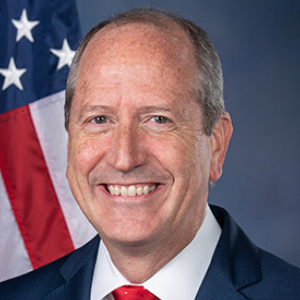Originally published by Matt Richtel on May 28, 2020 for The New York Times.
Upon arriving at work, employees should get a temperature and symptom check.
Originally published by Matt Richtel on May 28, 2020 for The New York Times.
Upon arriving at work, employees should get a temperature and symptom check.
Date: Thursday, June 11, 2020
Time: 2:00PM/EDT
The economic disruptions from COVID-19 have had significant impact on the credit quality of tenants, building occupancy and demand from buyers, resulting in substantial uncertainty in the valuation of commercial real estate and complexity in the accounting for lease modifications. John Thomas, CEO of Physicians Realty Trust, and Dennis Power, CFO of the Opus Group, will share their experiences with tenant collections, lease concessions, market demand, and the resulting impacts on real estate valuation across their market niches. Brent Maier will provide his view on the impacts he has seen in his role as the leader of Baker Tilly’s real estate transaction advisory services team while Mike Kamienski and David Jamiolkowski, also from Baker Tilly, will share their view of how these issues will impact financial reporting from a real estate impairment and lease accounting perspective. Don’t miss this discussion of critical topics so you understand the valuation and leasing impacts from COVID-19.
The collapse of WeWork’s $47 billion valuation was the most exciting real estate story of 2019. Landlords, lenders, customers and competitors watched in awe as the company crashed into a wall of scrutiny and ridicule. In 2020, Airbnb might offer a similar spectacle, with a $35 billion valuation and a growing number of questions about the company’s long-term prospects.
What propels both companies? The changing needs of end users and the growing appetite of venture capital investors to disrupt the way real estate assets are operated and transacted. Both trends will keep transforming the industry, regardless of the struggles of WeWork or Airbnb.
The NAIOP Research Foundation has published the NAIOP Office Space Demand Forecast for Q2 2020.
Key Takeaways:
Originally published by Dror Poleg for the 2020 Spring Issue.
The collapse of WeWork’s $47 billion valuation was the most exciting real estate story of 2019. Landlords, lenders, customers and competitors watched in awe as the company crashed into a wall of scrutiny and ridicule. In 2020, Airbnb might offer a similar spectacle, with a $35 billion valuation and a growing number of questions about the company’s long-term prospects.
Date: Thursday, June 11, 2020
Time: 2:00 PM/EDT
The economic disruptions from COVID-19 have had significant impact on the credit quality of tenants, building occupancy and demand from buyers, resulting in substantial uncertainty in the valuation of commercial real estate and complexity in the accounting for lease modifications. John Thomas, CEO of Physicians Realty Trust, and Dennis Power, CFO of the Opus Group, will share their experiences with tenant collections, lease concessions, market demand, and the resulting impacts on real estate valuation across their market niches. Brent Maier will provide his view on the impacts he has seen in his role as the leader of Baker Tilly’s real estate transaction advisory services team while Mike Kamienski and David Jamiolkowski, also from Baker Tilly, will share their view of how these issues will impact financial reporting from a real estate impairment and lease accounting perspective. Don’t miss this discussion of critical topics so you understand the valuation and leasing impacts from COVID-19.
Date: Tuesday, June 23, 2020 - Thursday, June 25, 2020
Where: Online
NAIOP's can't-miss industrial conference is going virtual!
People are talking about NAIOP's courses... NAIOP continues to offer on-demand courses free for members through August 1. Here's some of the great feedback from course registrants so far.
No code is required, just log in with your NAIOP member ID to access the offer. Take up to 90 days to complete a course after registering.
NAIOP is proud to honor up-and-coming commercial real estate professionals, 35 years of age and under, for their valued contributions and commitment to the industry with the annual Developing Leaders Award. The award is presented to those who have shown exemplary achievements and demonstrated outstanding professional accomplishments in the commercial real estate industry.
Nominations are now being accepted for the 2020 NAIOP Developing Leaders Award.
Deadline: June 26, 2020
NAIOP would like to hear from its members on your outlook for NAIOP events in 2020, both those hosted by NAIOP Corporate and those presented locally by chapters. Check your email for the survey invitation (sent May 27 and May 31) and complete the survey by Friday, June 5.
Join NAIOP Developing Leaders on Wednesday, June 3rd for a special webinar to talk with your peers about today’s COVID-driven climate and how its impacting our industry and your careers. Four DLs from the office, industrial and acquisitions sectors will take your questions, talk about how their companies are handling the pandemic’s effects, and how they believe it will reshape careers and the ways we do business. This is an exclusive program for NAIOP Developing Leaders only.
Moderator:
Kaitlin Goetzman, Senior Associate, Investments, The Brookdale Group
Originally published on May 19, 2020 by Paul Letourneau
One doesn’t have to look far to see the immediate impact of the novel coronavirus on commercial property markets. Across the U.S., millions of white-collar workers are now working from home, stores and restaurants have closed their doors, and nearly 17 million Americans filed for unemployment insurance in the first three weeks after the pandemic began shutting down cities. Nearly one-third of apartment dwellers didn’t pay their rent in the first week of April, in addition to the countless retailers and hotel companies that are unable to make their lease or mortgage payments.
Originally published on May 19, 2020 by Brielle Scott
There is no doubt COVID-19 has accelerated the already changing nature of commerce and work and introduced a new layer of considerations for commercial real estate development.
Originally published on May 22, 2020 by Jennifer LeFurgy, Ph.D.
Economist Douglas Holtz-Eakin Gives his Take on the U.S. Economy and the Government’s Unparalleled Response
Originally published on May 20, 2020 by Alex Ford
As states begin to slowly reopen their economies, governments, businesses and the public as a whole are contemplating what a post-coronavirus America will look like. Some aspects of this “new normal” – such as limited capacity requirements in public spaces and stricter sanitation mandates, to name a few – are already taking shape. But with a cure potentially months or years away, who bears responsibility if a customer or employee contracts the virus? The question is yet another example of the unprecedented times in which we are living, and has emerged as a key wedge issue among various stakeholders.
Join NAIOP Charlotte on Monday, June 1st at 12:00 pm as we learn about the quickly changing landscape at the federal and state levels in this legislative update. This Lunch with a Leader offers discussions on issues related to commercial estate development and around efforts to get the economy moving. Our special guests include:
 |
 |
 |
| Congressman Dan Bishop US House 9th District |
Speaker Tim Moore NC House 111th District |
Representative Jason Saine NC House 97th District |
Social distancing hasn’t stopped NAIOP Charlotte members from getting together (virtually) to continue to engage, learn, and socialize. Below are highlights from several recent member only events. A special thank you to our 2020 Cornerstone Sponsors. With their support, NAIOP Charlotte has been able to keep the conversations and information flowing during our time of social distancing.
March LWAL: Our first virtual Lunch with a Leader featured Taiwo Jaiyeoba and Alyson Craig from the City of Charlotte. Jaiyeobe and Craig shared how the city is adjusting to COVID-19 and keeping commercial development moving forward to maintain a healthy region. If you were not able to participate in the webinar and would like to listen, click here to access the recording.